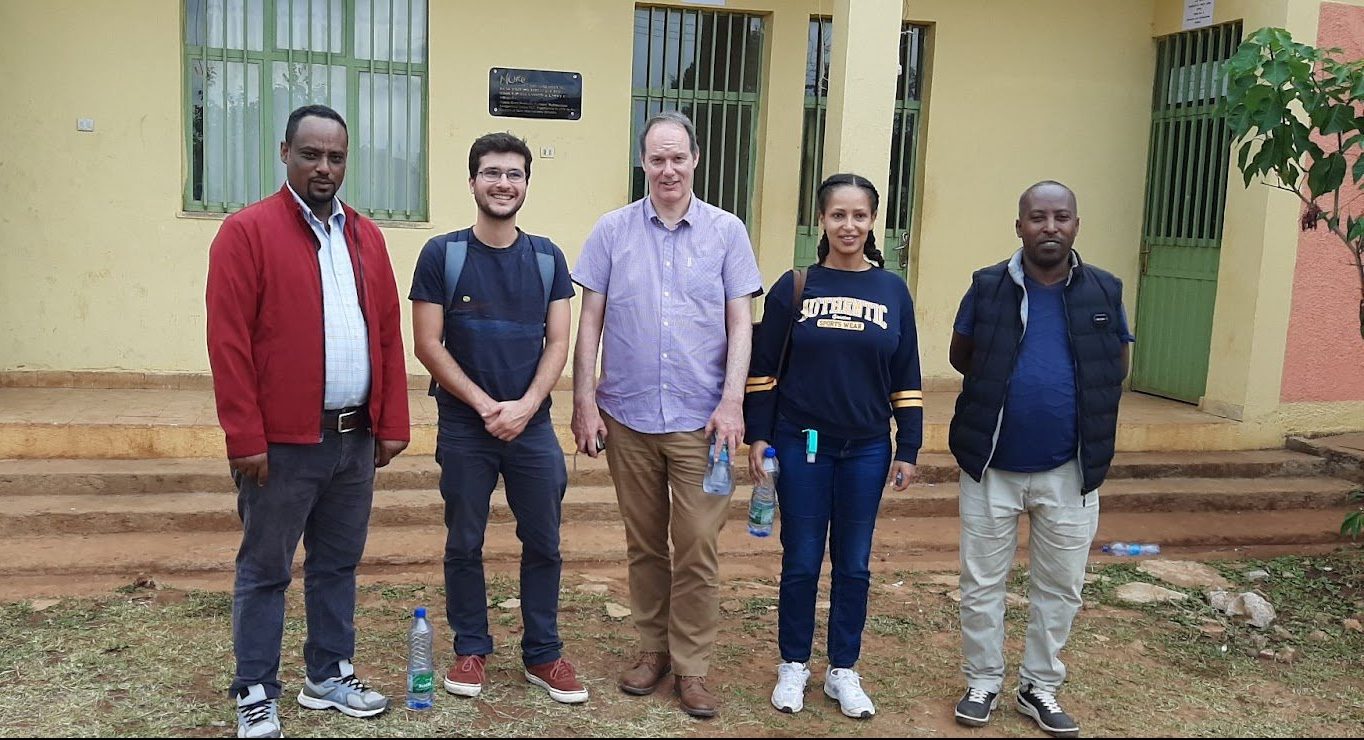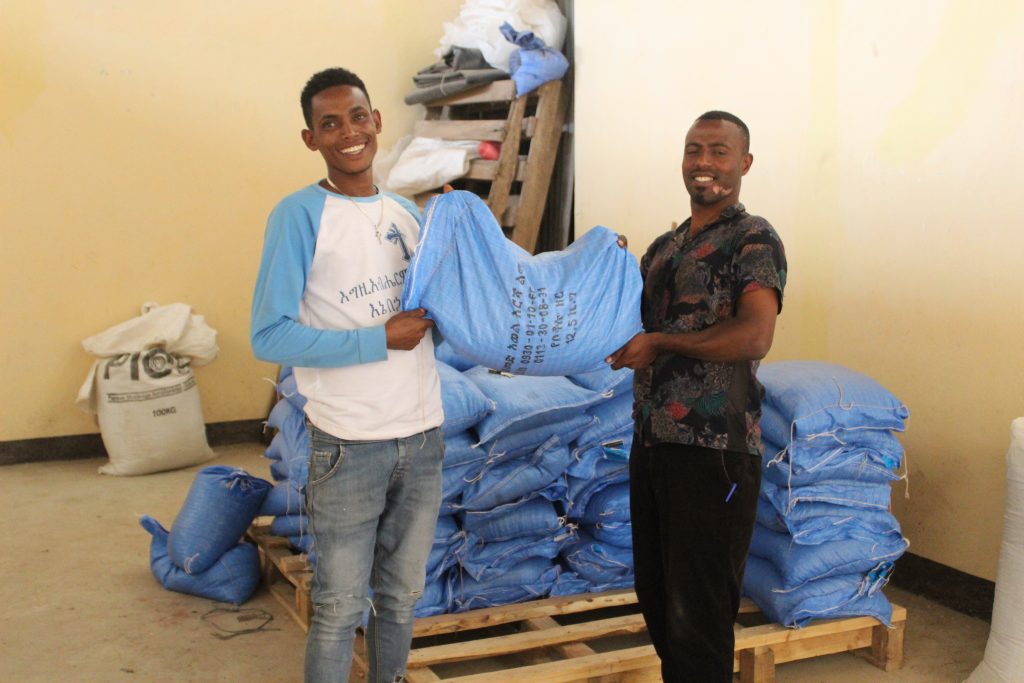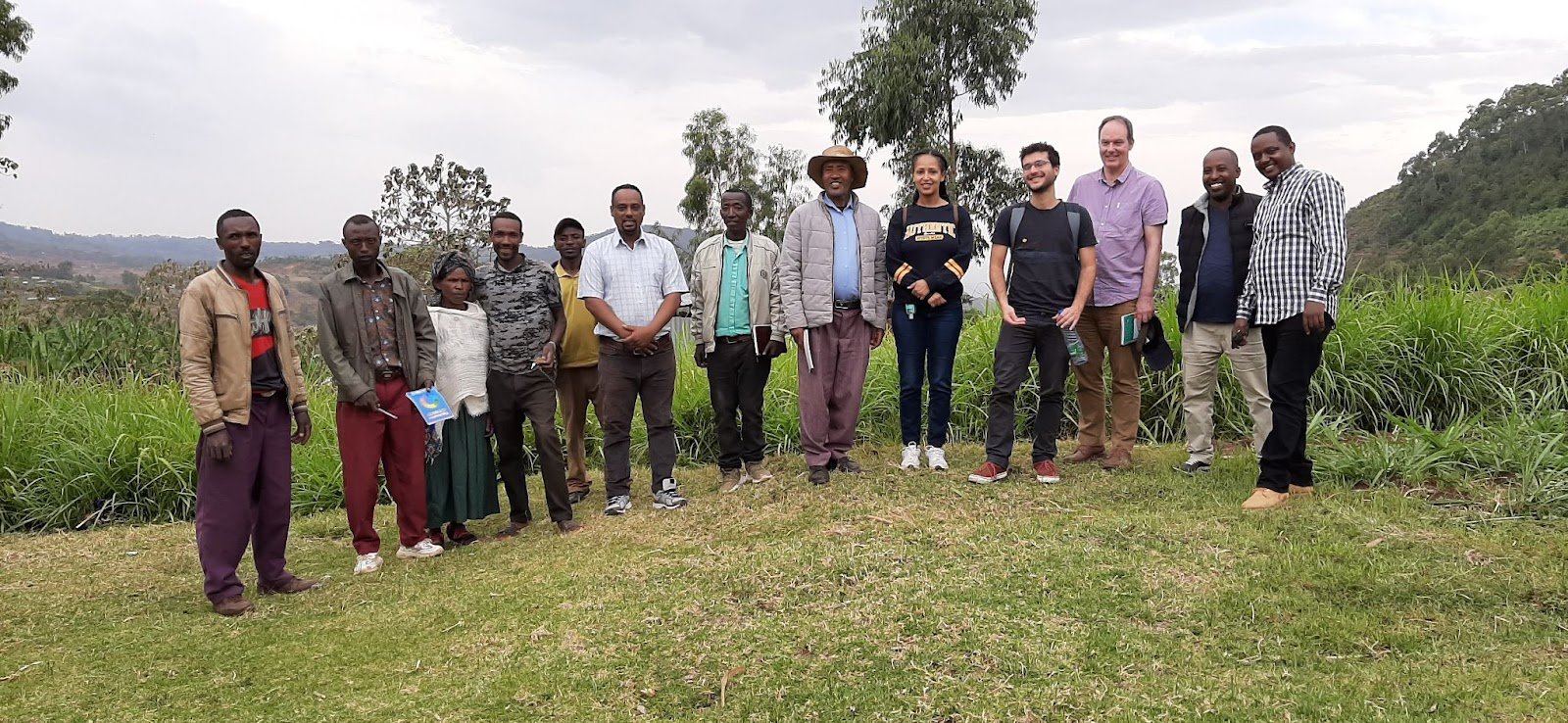Local partnerships that support locally-led solutions are a vital part of Nuru’s community climate resilience strategy. These partnerships support agribusiness professionalism among farmer organizations, as well as community-based dialogues that help communities adapt to an unstable world.
AMEA Ethiopia Local Network
Nuru Ethiopia is an active member of the Agribusiness Market Ecosystem Alliance (AMEA), a network of organizations working to accelerate the professionalization of farmer organizations. AMEA is a partnership of NGOs, private sector companies, and multilateral institutions that aim to give smallholder farmers around the world the best opportunity for growth and development. AMEA’s local network in Ethiopia brings together local stakeholders to have pre-competitive meetings focused on cooperative development. It has also created a platform for member organizations to share experiences and best practices, facilitate learnings through regular meetings, and offered capacity-building opportunities and studies.
Nuru Ethiopia Marketing & Development Director Feven Yimer notes that collaboration and partnerships make a critical contribution to community development efforts. Feven notes that the AMEA partnership specifically has provided Nuru Ethiopia with “increased visibility and networking, a synergetic effort in development, [an opportunity to] avoid duplication of efforts, and [a platform for] sharing of talents, skills, experience, and lessons.” All of these impacts serve to strengthen the local farmer organizations and unions that Nuru Ethiopia is serving, ensuring they are increasing their professionalism.
This membership has served as a means for advocacy and visibility. It has also created opportunities for potential collaborations among member organizations while encouraging such efforts by members themselves. Nuru Ethiopia’s Cooperative & Agribusiness Program Manager Biruk Abayneh notes the value of memberships like this, “It has become clear to development practitioners that with the complex and quick social and economic transformations, […] no single sector, be it government, business companies, civil society or academic institutions will be able to manage development work single-handedly.”
AMEA Members and Partners Day
In March 2022, Feven and Biruk were invited to present Nuru Ethiopia’s SCOPEinsight and work experience during AMEA Members and Partners Day. The event, organized by the AMEA Ethiopia Local Network, focused on exploring the use of AMEA tools for a standardized approach to the assessment, training, and coaching of farmer organizations. Additionally, participants worked together on developing a strategy to help farmer organizations of all sizes to receive effective and affordable business development services.
This event presented Nuru Ethiopia with a valuable opportunity to share its lessons learned, including demonstrated impact in making progressive changes in SCOPEinsight results over the years, an adaptive approach to addressing gaps identified by the assessment, and a leadership succession plan. Additionally, the presentation allowed Nuru Ethiopia to share its continuous capacity building and holistic support in equipping farmer organizations with necessary skills, knowledge, and practice that ultimately strengthen the resiliency of farmer members to unexpected shocks.

Nuru Ethiopia staff and AMEA network members
AMEA Global Network Visit to Nuru Ethiopia
Following Members and Partners Day, the Network Director and Program Officer from AMEA global – of which Nuru International has been a member since 2018 – visited Ethiopia to see the AMEA Local Network and to explore the impact of Nuru’s model on nascent cooperatives that have historically been marginalized. During their visit, the AMEA team visited the Ethiopian highlands, met with farmer organizations, and witnessed the transformation that is possible when these organizations come together to form a union. Union cooperatives are higher-level organizations that represent the interests of primary cooperatives through formal agreements and by actively engaging with primary cooperative leaders. Cooperative unions typically support 15-30 primary cooperatives.
AMEA Program Officer Filipe Di Matteo noted that “being in the SNNPR with Nuru’s team reminded me of what we work for in practice – away from computer screens – and it brought a light into how Nuru fostered collaboration and local partnerships to achieve tangible results for marginalized communities. This kind of learning is crucial for the work we do in AMEA, as we strive to support our members and partners to find synergies in their work.”
Hidota Union
Nuru Ethiopia works with Hidota Union which supports 58 primary cooperatives that have a total of 11,486 members. In 2016, Nuru Ethiopia supported the establishment of Hidota Grain Producer Farmers’ Cooperative Union PLC. At the time, the union supported 14 primary cooperatives and 3,537 members. Since then, Nuru has grown significantly, increasing its support to serve both Hidota and now Eisipe Diche Union and a total 119 primary cooperatives with nearly 19,000 member farmers as of 2022.
“This was my first field trip in two years, and it was inspiring to see the progress that AMEA members and partners have made, despite all the challenges. […] I was particularly impressed by Nuru’s innovative work to blend three AMEA tools and develop Hidota Union’s ability to take the lead in developing their members. If anyone wants to understand “the AMEA approach” and its potential to transform agriculture, then our members’ work in Ethiopia provides an excellent example.” -Mark Blackett, AMEA Network Director
The union has scaled its business line, shifting from only providing agricultural input and output supply to now also providing consumer goods supply that includes cooking oils, salt, and other household commodities. In 2020, despite the pandemic, Hidota’s net profit margin was 5%, which exceeded its 3% net profit margin target. The union was also a lifeline to its cooperative members as the pandemic began. Hidota Union contributed to grain supply chain (market) stabilization and served as a grain bank to its members and the community at large, helping these member households cope with pandemic-related food insecurity.

Hidota Union members
Visiting Hidota Union, meeting with Nuru Ethiopia farmers, and exchanging ideas were mutually beneficial for and encouraging to Nuru Ethiopia staff members and AMEA members. AMEA’s Regional Network Facilitator (Ethiopia), Hileena Chole, notes that “visiting Nuru’s project site in the Arba Minch area was a rare opportunity to see the organization’s impact on the ground, and to hear from members of the community they support.” By observing the local impact of Nuru Ethiopia within this community, Hileena was able to “see why they have been so successful in building the capacity of unions and cooperatives in the area, because their approach is holistic and comprehensive, taking into account all the aspects necessary to help a community grow.” She goes on to add that she was “especially impressed by Nuru’s way of embedding the capacity building approach within unions and government offices to create local ownership and a more targeted and efficient way to cascade down to the cooperatives and farmers.”
“It is important to note that we can achieve things together through collaborations or partnerships that are impossible to achieve alone. Such a type of multi-sector partnership is greatly required in today’s development scenarios to achieve a broader and sustained impact. These partnerships can create opportunities for innovations, mobilizing and pooling resources, and generate learnings. Although each sector has a valuable role in development work, it is the value of collaboration/partnership that brings real change.” -Biruk Abayneh, Nuru Ethiopia Cooperative & Agribusiness Program Manager
Nuru looks forward to continuing to partner with AMEA to strengthen farmer cooperatives and bring lasting meaningful choices to farmers.


